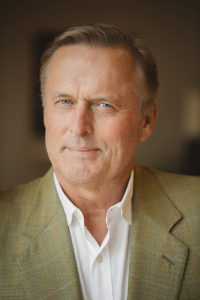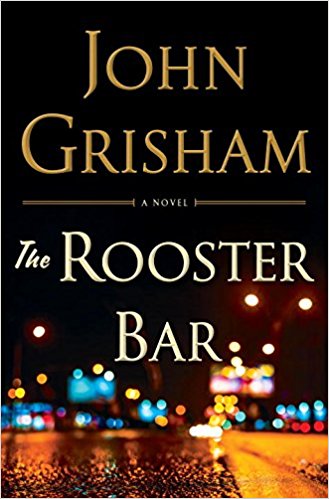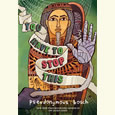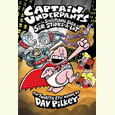Human Drama
Chris Offutt on small towns, homesickness, and whether “bad guys” exist
Chris Offutt introduced readers to Army CID investigator Mick Hardin and his rural Kentucky community in 2021 with The Killing Hills, the first of a series of thrillers balancing murder and crime with loyalty and humor. Shifty’s Boys followed in 2022, and 2023 brings a third novel, Code of the Hills, taking Mick back to his hometown, where once again trouble is brewing.
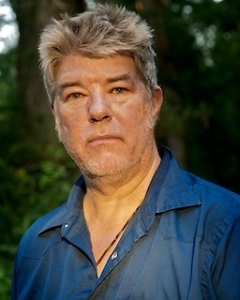
As the book opens, Mick’s sister Linda, the local sheriff, is busy investigating a murder, and there’s more killing to come. Murder, though, isn’t the only crime keeping local law enforcement busy. There is illegal cockfighting nearby, and Mick and his crew have to work quickly to uncover any and all links between the various misdeeds.
While the crime elements keep the novel’s plot pulsating, Offutt’s storytelling captures the authentic spirit of Southern rural communities. There is colloquial language. There’s a little gossip. There’s atmosphere, too. Code of the Hills is consuming, both as a thriller and as a story about Southern life and family.
Offutt is the author of two novels in addition to the Mick Hardin series, as well as two short story collections and three memoirs, including My Father, the Pornographer. A native of eastern Kentucky, he now makes his home near Oxford, Mississippi. He answered questions from Chapter 16 by email.
Chapter 16: In Code of the Hills, small-town values and superstition are on display. I’m from a very small town myself, and I kept seeing my home reflected. Looking at this book (and series) and the larger crime genre, what do you think the small-town setting offers that other locations maybe can’t?
Chris Offutt: I would say the biggest advantage of a small-town setting is intimacy of character and place. The people know the place and each other extremely well. That is a strong influence on all dynamics — verbal, emotional, and psychological. The lack of anonymity affects how people behave. It’s my hope that those effects can be transmitted to a reader through the narrative. A closeness. An intimacy with the people and the place.
Next advantage of setting would be a distinctly different way people interact within a small population. When everyone knows everyone’s family history, there is more empathy and understanding among people. That allows me to bring the same things to the prose — empathy, understanding, and love.
This is also true of some urban settings, especially ones that focus on a particular neighborhood and/or ethnic group. I’m thinking of the North Beach series by Dominic Stansberry set in San Francisco. Or the August Snow series in Detroit by Stephen Mack Jones. Both heavily urban settings, but the books focus on character and setting.
Chapter 16: One of the things I appreciate most about this book is how it balances the crime elements of murder and mystery with deeply authentic characters, who, in many ways, give the novel its momentum. It feels like these characters are born from the real world — maybe from your own lived experience. Am I onto something here?
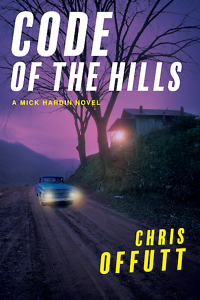 Offutt: Some of the characters are based on actual people I know. But 90 percent of them are amalgams. A blend of various people and their attributes, both good and bad qualities. It may go back to the small town/rural setting. Everyone is unique and accepted, despite eccentricities. As a writer, I follow the old actor’s dictum — there are no small parts, only small actors. I try to give each character an opportunity to shine in the light. If they don’t come alive on the page for me, they won’t for a reader.
Offutt: Some of the characters are based on actual people I know. But 90 percent of them are amalgams. A blend of various people and their attributes, both good and bad qualities. It may go back to the small town/rural setting. Everyone is unique and accepted, despite eccentricities. As a writer, I follow the old actor’s dictum — there are no small parts, only small actors. I try to give each character an opportunity to shine in the light. If they don’t come alive on the page for me, they won’t for a reader.
Also, of course, each character represents various versions of myself!
Chapter 16: Near the beginning of the novel, you write, “Mick was going home to a place that was no longer home.” Returning home is such a complicated act for many of us. For Mick, do you think it’s a positive or a negative that he can’t really go home again?
Offutt: It’s really Mick who has changed more than what home is, or was. I think the nature of feeling homesick for somewhere you love really builds the place up in your mind. It becomes larger and more important due to imagination and yearning. Then a return is often disappointing. The reality doesn’t live up to what we invented through longing.
Not everyone grows up in a single distinct place. When you do, and you leave, you miss it, and enlarge your past when life is difficult. It’s like wanting to return to a simpler time of life — youth perhaps, or a less complicated existence. The hills of eastern Kentucky are very much an enclosed world. Mick may not have always fit into that world, but the act of leaving renders him less able to fit in upon his return. This is painful and is true for many people. That internal conflict is what makes for human drama.
Chapter 16: Like most crime novels, Code of the Hills has its share of bad guys. How do you approach constructing villains so these characters seem so real and so genuinely human?
Offutt: I’ve known a few people that the world considers “bad guys.” All the ones I knew had very good sides to their personalities, too. I recently learned that an old friend had robbed two banks in his 20s. No one was hurt, and he got away with enough money to pay off child-support. He’s also one of the warmest and funniest guys I know. These days he’s filled with compassion.
I think nobody is all good or all bad. Most of us try to be good. But under certain circumstances and enough pressure, we are all capable of doing something bad. Life requires courage and grace. Sometimes that means doing something that goes against one’s personal ethics. Or it means prioritizing one’s personal ethics over the law.
My approach is to try and create a realistic person first. Their actions come after the fact, even if they’re criminal, bigoted, or just plain bad. I don’t believe people were born bad. They get that way somehow and that makes them interesting to me. I don’t judge my characters. I try to approach all of them with love. If I love them and find them interesting, writing about them becomes more rewarding.
Chapter 16: When I think about your Mick Hardin series, one of the first words that comes to my mind is “fun.” I’m sure it likely has to be for you too, since Code of the Hills is the third book in the series in three years. What is it that keeps bringing you back to this character and his world?
Offutt: Love. I love all the characters. I love the landscape. And I love the unique way that people in the hills think. It’s always more fun, as you say, to spend time with people you love.
Chapter 16: As I was reading Code of the Hills, I picked up on a handful of chapters that could function as stand-alone stories. With you having success in writing short stories as well as novels, I’m curious what you see as the relationship between the two — how they work, what they do, how you approach them?
Offutt: I’m not sure that there is a relationship between the two forms — novel and short story.
Short stories are tougher to write. There is a lot of pressure to create a world, a character, a problem, a narrative, and a resolution (of sorts) to the problem. For me, the key is to start near the end.
A novel has much more latitude and freedom. They take longer, of course. And revision takes much longer.
A short story is like taking a small boat to sea and traveling along the coast. You can hear the sounds and see the lights of shore. A novel is like taking a ship straight out into the ocean until there is no land in sight.

Bradley Sides is the author of a collection of short stories, Those Fantastic Lives. He teaches writing at Calhoun Community College and was an instructor at Humanities Tennessee’s Young Writers’ Workshop.
